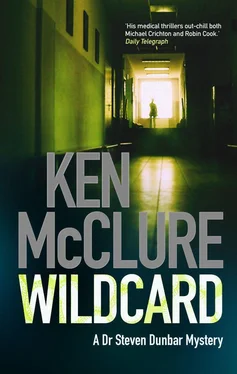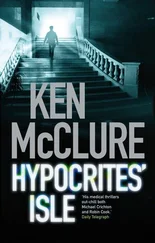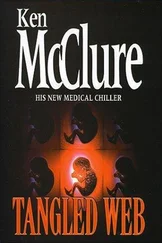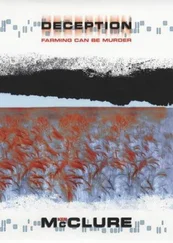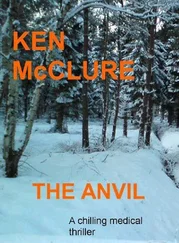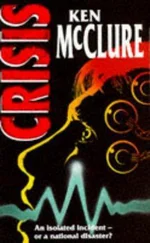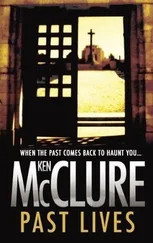Ken McClure - Wildcard
Здесь есть возможность читать онлайн «Ken McClure - Wildcard» весь текст электронной книги совершенно бесплатно (целиком полную версию без сокращений). В некоторых случаях можно слушать аудио, скачать через торрент в формате fb2 и присутствует краткое содержание. Жанр: Триллер, на английском языке. Описание произведения, (предисловие) а так же отзывы посетителей доступны на портале библиотеки ЛибКат.
- Название:Wildcard
- Автор:
- Жанр:
- Год:неизвестен
- ISBN:нет данных
- Рейтинг книги:4 / 5. Голосов: 1
-
Избранное:Добавить в избранное
- Отзывы:
-
Ваша оценка:
- 80
- 1
- 2
- 3
- 4
- 5
Wildcard: краткое содержание, описание и аннотация
Предлагаем к чтению аннотацию, описание, краткое содержание или предисловие (зависит от того, что написал сам автор книги «Wildcard»). Если вы не нашли необходимую информацию о книге — напишите в комментариях, мы постараемся отыскать её.
Wildcard — читать онлайн бесплатно полную книгу (весь текст) целиком
Ниже представлен текст книги, разбитый по страницам. Система сохранения места последней прочитанной страницы, позволяет с удобством читать онлайн бесплатно книгу «Wildcard», без необходимости каждый раз заново искать на чём Вы остановились. Поставьте закладку, и сможете в любой момент перейти на страницу, на которой закончили чтение.
Интервал:
Закладка:
‘Not in the normal way of things,’ replied Cummings. ‘Viruses have to replicate in order to live. Take away their cellular host and they die.’
‘How about inside a cellular host?’ asked Steven.
‘You mean, lie dormant within cells without replicating?’
‘I suppose I do.’
‘There’s a state called lysogeny in bacteria,’ said Cummings thoughtfully. ‘Even bacteria have problems with viruses. Certain bacterial viruses can enter the bacterial cell and interpolate themselves into their host’s DNA. That way, when the bug’s DNA replicates normally the virus is replicated, too, but in a controlled way, so no harm’s done. Occasionally, when something out of the ordinary happens to stimulate the virus, it goes into uncontrolled replication and kills its host.’
‘That’s the sort of situation I’ve been looking for,’ said Steven. ‘What did you call it?’
‘Lysogeny,’ said Cummings. ‘But it happens only in bacteria and only with certain bacterial viruses.’
‘Maybe we’re about to learn something new,’ said Steven.
‘Come to think of it,’ said Cummings, ‘maybe a similar situation actually can exist in human beings.’
‘Go on,’ said Steven.
‘I was thinking about the Herpes simplex virus,’ said Cummings. ‘You know, the bug that gives you cold sores. It seems to lie dormant in the mucosa around your lips until something like sunlight or stress triggers it off. No one has ever satisfactorily explained that.’
‘Food for thought,’ said Steven.
Steven drove up to Hull, suspecting in his heart of hearts that he had been too hasty in volunteering to carry out the pathology on Mary Xavier. Not for the first time, he reminded himself — albeit too late — that he wasn’t the single man with no responsibilities that he imagined himself to be when the bugle sounded. In reality, he was a single parent with a daughter’s welfare to consider. Jenny needed a live father, not a dead hero, but here he was once again courting danger and getting the buzz that he’d sought all his life. He was on his way to carry out a procedure that even experienced pathologists of many years’ standing might baulk at. ‘Oh, Jenny, love,’ he muttered to himself. ‘You’ve got an idiot for a father.’
Pulling out now was not an option, though, so he’d do the next best thing and think through the dangers ahead in order to try to minimise them. In theory, it was simple; he just had to avoid coming into contact with the reservoir of filovirus particles that was Mary Xavier’s body. It was the minute size of the virus that constituted the real danger. The particles were invisible not only to the naked eye but to the 1000? probing of an ordinary light microscope; it would take the power of an electron-beam microscope to determine their presence. Their sheer lack of physical substance meant that they were barely subject to the constraints of gravity and friction, and therefore had little or no positional stability. Millions of them could be carried on a droplet of moisture so light that it would remain airborne for hours. The slightest movement in the air could send clouds of them scattering off in all directions.
The only comfort Steven could find was in the fact that knowledge of the enemy was perhaps the most effective defence against it. He understood just how deadly a filovirus could be; there was no way that he would ever underestimate it. He would be wearing full protective gear with hood, visor and respirator, and have everything checked thoroughly beforehand for leaks. He would double-glove and, as an extra precaution, would use a chain-mail gauntlet on his left hand to give him protection against accidental cuts arising from a knife or scalpel slipping.
In his mind’s eye, he went through the exact procedure he would use in the removal of Mary Xavier’s heart. First, the central incision to open up the chest cavity, then the rib resection to give access to the heart, the freeing of the heart itself from associated tissues, and finally the removal of the organ itself. He would place it in a steel dish, and rinse it through with clean, sterile saline before dissecting out the mitral valve with fresh instruments. He would seal the valve inside an airtight container for transport to the lab at Porton, and the job would be done. Easy peasy. If only he could convince his stomach of that.
Steven had gone through the pathology in his mind several times by the time he reached the convent. Parked outside it were two police cars, a mechanical digger and two transporters associated with the Swedish mobile lab, which he could see had already been re-erected. He got out and walked over to the group of men standing by the vehicles.
‘I’m Inspector Jordan,’ said one of the policemen. ‘Are you the pathologist?’
‘Yes,’ replied Steven. ‘Everything ready?’
‘The sisters have decided to show their disapproval by distancing themselves from the whole affair.’
‘Understandable, I suppose,’ said Steven. ‘Will that affect anything?’
‘Apart from no one getting a cup of tea, I don’t think so,’ said Jordan. He looked round the group. ‘It’s important we agree beforehand who does what, so I’ll run through the plan of action. Mr Frost here from the council will operate the digger to excavate the grave and expose the casket. Dr Laarsen and his colleagues will then be responsible for its actual removal, but of course they’ll have Mr Frost’s help with the digger to lift it out, in view of the weight of the leadlined casket. Dr Laarsen’s people will oversee the transport of the casket to the mobile lab, where Mr Grieve from the undertakers who’s an expert on the sealing of high-risk coffins will advise on the opening of the security lid. He will then retire and Dr Laarsen’s people will remove the body. Dr Dunbar will then take over and carry out the post-mortem examination. When he has completed his work we’ll go through the whole process in reverse. Everyone happy?’
‘Happy’ was perhaps the wrong word, thought Steven. In fact, it was definitely the wrong word; but he, like everyone else, nodded agreement.
‘Right then, Mr Frost, if you please.’
The digger started up and diesel fumes filled the night air as the little yellow machine started to trundle slowly on twin metal tracks towards the graveyard at the back of the convent, where arc lights illuminated screens erected round Sister Mary Xavier’s grave. One of Laarsen’s people was detailed to provide Steven with protective gear, which he donned outside the mobile lab while the others trooped solemnly off behind the digger like members of a cathedral choir on their way to Mass.
Although there was no sign of the nuns, Steven felt the eyes of the Reverend Mother on him as he crossed the graveyard to join the others behind the screens. It might be his imagination, but he had a strong sense of her standing there in the darkness behind one of the upper convent windows, the dark birthmark on her face providing unwitting camouflage as she silently deplored and condemned that which he had instigated. It was almost a relief to step behind the screens and be shielded from view.
The digger bucked and scraped at the earth as Frost manipulated twin levers in the cab like a TV-series puppet, the spastic movement of its small shovel building up a growing pile of earth at the side of the trench. Nerves jangled as, with a sudden change in sound, the blade struck the coffin lid. The digger’s work was done for the moment and its engine died away. Two of Laarsen’s people lowered themselves into the grave to clear away the remaining earth by hand and to loop lifting cables under the casket.
As the minutes passed, Laarsen leaned over the grave to ask his men what the hold-up was. One of them reported that he was having difficulty getting the cable at his end far enough under the casket to make sure that it didn’t slip.
Читать дальшеИнтервал:
Закладка:
Похожие книги на «Wildcard»
Представляем Вашему вниманию похожие книги на «Wildcard» списком для выбора. Мы отобрали схожую по названию и смыслу литературу в надежде предоставить читателям больше вариантов отыскать новые, интересные, ещё непрочитанные произведения.
Обсуждение, отзывы о книге «Wildcard» и просто собственные мнения читателей. Оставьте ваши комментарии, напишите, что Вы думаете о произведении, его смысле или главных героях. Укажите что конкретно понравилось, а что нет, и почему Вы так считаете.
